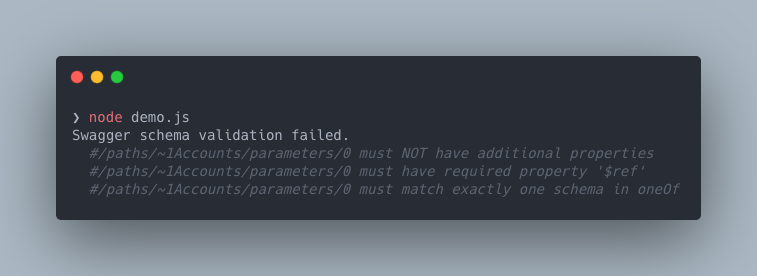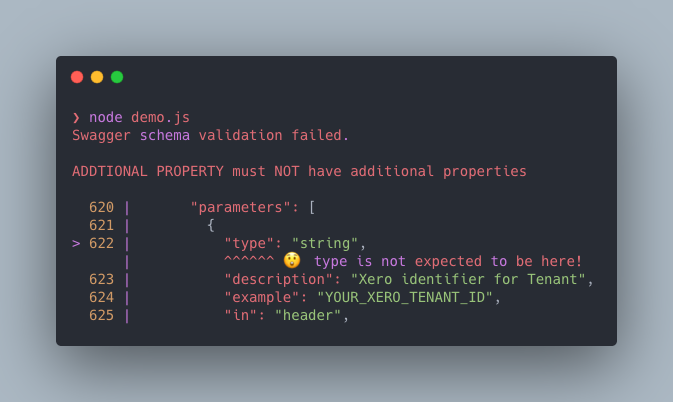Package Exports
- trieve-openapi-parser
- trieve-openapi-parser/lib/index.js
This package does not declare an exports field, so the exports above have been automatically detected and optimized by JSPM instead. If any package subpath is missing, it is recommended to post an issue to the original package (trieve-openapi-parser) to support the "exports" field. If that is not possible, create a JSPM override to customize the exports field for this package.
Readme
Swagger 2.0 and OpenAPI 3.x parser/validator
Features
- Parses Swagger specs in JSON or YAML format
- Validates against the Swagger 2.0 schema, OpenAPI 3.0 Schema, or OpenAPI 3.1 Schema
- Resolves all
$refpointers, including external files and URLs - Can bundle all your Swagger files into a single file that only has internal
$refpointers - Can dereference all
$refpointers, giving you a normal JavaScript object that's easy to work with - Tested in Node.js and all modern web browsers on Mac, Windows, and Linux
- Tested on over 1,500 real-world APIs from Google, Microsoft, Facebook, Spotify, etc.
- Supports circular references, nested references, back-references, and cross-references
- Maintains object reference equality —
$refpointers to the same value always resolve to the same object instance
Example
OpenAPIParser.validate(myAPI, (err, api) => {
if (err) {
console.error(err);
} else {
console.log('API name: %s, Version: %s', api.info.title, api.info.version);
}
});Or use async/await or Promise syntax instead. The following example is the same as above:
try {
let api = await OpenAPIParser.validate(myAPI);
console.log('API name: %s, Version: %s', api.info.title, api.info.version);
} catch (err) {
console.error(err);
}For more detailed examples, please see the API Documentation
Installation
Install using npm:
npm install @readme/openapi-parserUsage
When using Swagger Parser in Node.js apps, you'll probably want to use CommonJS syntax:
const OpenAPIParser = require('@readme/openapi-parser');When using a transpiler such as Babel or TypeScript, or a bundler such as Webpack or Rollup, you can use ECMAScript modules syntax instead:
import OpenAPIParser from '@readme/openapi-parser';Differences from @apidevtools/swagger-parser
@apidevtools/swagger-parser returns schema validation errors as the raw error stack from Ajv. For example:

To reduce the amount of potentially unnecessary noise that these JSON pointer errors provide, @readme/openapi-parser utilizes better-ajv-errors, along with some intelligent reduction logic, to only surface the errors that actually matter.

Additionally with these error reporting differences, this library ships with a validation.colorizeErrors option that will disable colorization within these prettified errors.
Browser support
Swagger Parser supports recent versions of every major web browser. Older browsers may require Babel and/or polyfills.
To use Swagger Parser in a browser, you'll need to use a bundling tool such as Webpack, Rollup, Parcel, or Browserify. Some bundlers may require a bit of configuration, such as setting browser: true in rollup-plugin-resolve.
API Documentation
Full API documentation is available right here



